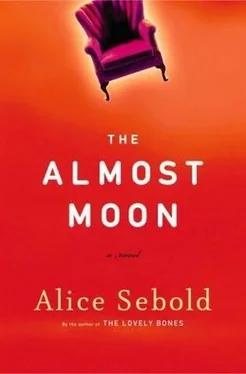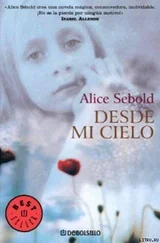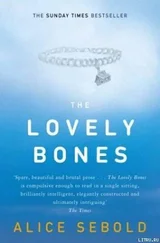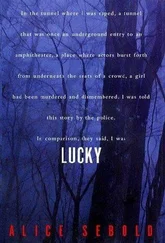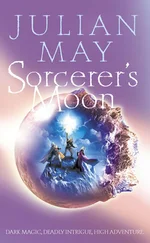“And if the cops come?”
“Act as if this is all new to you. You don’t know who killed your mother.”
“And hope that Mrs. Castle told them about Manny.”
Jake bowed his head. “Don’t tell me those things.”
“Right, I’m alone in this.”
“Yes,” Jake said. “I mean, I don’t know.”
We were double-parked outside the student union. Behind us, a car blasting hip-hop pulled up.
I put my hand on the latch.
“Good luck,” Jake said.
I did not go into the student union, where there was a chance I might run into Natalie having a liberal breakfast before modeling for the Lucian Freud wannabe. Instead, I walked around the low, flat building and down a well-traveled dirt path to the sole remaining patch of earth Westmore owned that had yet to be developed. The problem was that every time it rained, the field of weeds would flood. It sometimes remained swamped for half the year. There was one large oak tree in the middle of it. It must have been more than two hundred years old before its roots had rotted through.
Perched on the edge of the field, as I thought they might be, was the Senior Center ’s watercolor class. In the fall and then again in late spring, you could see a group of older people in different scenic spots around the campus, with their huge painting boards out and all of them wearing sun hats and matching red Windbreakers. Their teacher was a woman my age. A volunteer who loved to work with the elderly.
I sat down in the grass far enough away from them that I would not be noticed. All of them except the teacher had their backs to me, and she was intent on her task of going from senior to senior and offering brief encouraging commentary.
I put my hands up underneath my sweater for warmth and felt the silk of the rose-petal-pink slip. I could have been watching a herd of zebra on the African plain-that’s how different these older people felt from my mother. I saw these people as wondrous, as the fantasy types that I wished had raised me. What had they been in their first lives? Lawyers, bricklayers, nurses, fathers, mothers? It seemed surreal to me that they would choose to come to the Senior Center, see classes offered in watercolors, and then sign up. I knew that I would never fall among their number. I was raised by a solitary woman to be a solitary child, and that was, I now saw, what I had hopelessly become.
I had to eat something, and Natalie or no Natalie, the student union was the only place within walking distance to get food at this hour. I stood, regretfully, and bid good-bye to the Sunday painters I had been taught to condemn.
I walked through the gathering crowd of students outside the student union. Westmore was not known for its intellects or even its sportsmen. It was known for being an affordable commuter school, good for a four-year degree in subjects such as marketing or health-care consulting. The Art Department, like the English Department, was a condescended-to anomaly staked out by a variety of types whom Natalie and I alternately thought of as losers or geniuses. The school’s founder, Nathaniel Westmore, had been an artist and writer before his Thoreau-like disappearance into the woods of Maine. As a result, both departments had remained comparatively independent from the rest of the campus.
Westmore students wore the off-price version of the clothes that were worn in New York a decade ago. On the few occasions I’d brought Sarah with me to the campus, her presence had caused a stir. I had always been proud that my daughters lived in other states and chose to make their lives away from home even if, very often, I wished I could drive down the street and sit in their houses. But I would never do that to either one of them. One saving grace in my own life was that my mother was never capable of a pop-in.
I walked up the wheelchair-accessible ramp and passed through the heated momentary hush of the double doors, and there was Natalie, among the sea of students thirty years’ our junior. She was sitting at a round booth by herself, over near a wall of windows that looked out on the swampy undeveloped land. From the student union, the old oak tree wasn’t visible, only the reedy grass that soon, after the next frost, would turn color and, as winter came on, make an ushering sound as the dried-out stalks beat against one another in the wind.
She was looking out into the distance, perhaps out over the highway, where the large traffic signs were nothing but small green flecks and the cars were impossible to see.
I would not tell her, I realized. How would I phrase it? I had said the words so far only once. “I killed my mother.” I wondered at this new lexicon I had entered. I killed my mother. I fucked your son.
I walked over to her, barely aware of the students bearing food on trays as I passed.
“Natalie.”
And there were her eyes, Natalie’s light-brown eyes, which I had looked into since childhood.
She was dressed in one of her faux Diane von Furstenberg dresses that Diane von Furstenberg would never have put her name on. The material consisted of an inscrutable pattern that seemed to adorn many women’s bodies at middle age-a sort of dazzle camouflage designed to keep the eye from being able to focus on the actual shape inside. The wraparound dress was in a style we’d agreed was perfect for disrobing but that I had abandoned. At some point, seeing those dresses hanging in my closet had begun to depress me-their light cloth and indistinguishable patterns made me think of endless suits of wasted flesh.
“Hi,” she said. “You can finish this. I’m stuffed.”
I sat down opposite her, and she pushed the pale orange-flecked cafeteria tray over to me. On it was half a cheese danish and a yogurt left untouched. We had always been like this. She ordered too much, and I ate what was left.
“Where were you yesterday?” she asked. “I called your number half a dozen times. I even called the Bat Phone twice.”
“At my mother’s,” I said.
“I had a feeling. How is she?”
“Can we not talk about it?”
“Coffee?”
I smiled at her.
Natalie stood with her cup. The cafeteria cops never stopped us when we walked backward through the line and got a refill. We were tacitly granted the same privileges as the teachers.
I wolfed down the half-eaten danish and peeled back the foil on the top of the yogurt. By the time Natalie returned, I was halfway done with my secondhand meal. The coffee-hot, watery, weak-obliterated what was left of my appetite.
“What’s with you?” she asked.
“What do you mean?”
“You seem sort of nerved-out somehow. Is it Clair?”
I thought of deflecting mechanisms. I could have commented that not everyone ends the night with half a bottle of wine and a sleeping pill or that not everyone was secretly fucking a construction worker from Downingtown… but I didn’t. I would tell as much of the truth as I could.
“Jake showed up,” I said.
It was as if she’d heard a gun go off. She slapped both her hands down on the table and leaned in toward me.
“What?”
“You know how I told you he used to wake me when the girls were sleeping? With pebbles from the neighbor’s geranium pots?”
“Yes, yes.”
“He woke me up this morning at about five a.m. He was standing inside the fence of my backyard, tossing rocks. We spent the morning together.”
“Helen,” she said, “it is now my opinion that you are not acting nerved-out enough! What’s going on?”
“I don’t know,” I said. “How’s Hamish?”
“Since when do you care? How’s Jake? ”
And so I told Natalie that he currently lived in Santa Barbara on the estate of a software mogul whom he had never met. That he was doing some sort of installation there. That he had a female dog-sitter for his dogs, Milo and Grace, and that he planned to travel to Portland soon to see Emily and the children. I realized, as I said the few things I knew, that I didn’t know very much.
Читать дальше
